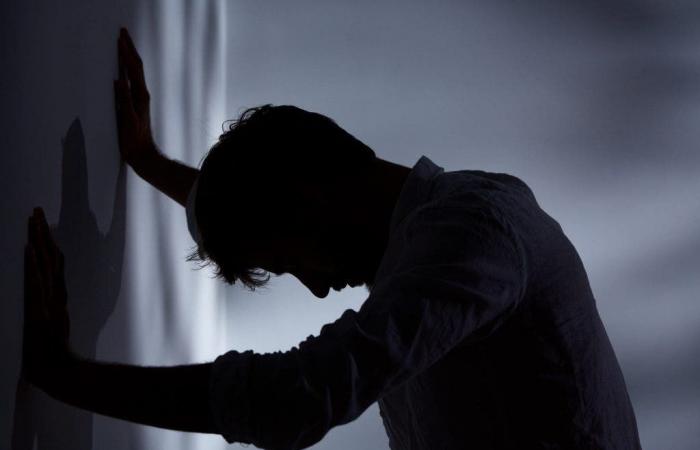This article was automatically translated from HIBAPRESS, the Arabic version:
Heba Press – Abdul Latif Baraka
Psychological depression is one of the most significant health problems affecting individuals and societies across the world, and Morocco is no exception to this phenomenon.
Although this psychological disorder can affect people of any age and from any societal group, the cultural, social and economic challenges that Morocco faces make the problem of depression a complex issue that requires in-depth study to understand its dimensions and how treat it.
Prevalence of depression in Morocco
International and local reports indicate that depression represents one of the most significant mental health disorders in Morocco.
According to a report published by the World Health Organization (WHO), around 26 percent of Moroccans suffer from depression during their lifetime, 9 percent suffer from anxiety disorders and 5.6 percent suffer from mental disorders, while that 1 percent of Moroccans suffer from schizophrenia. .
The same study also showed that women are more affected by depression than men, with rates higher than 8% among women, compared to 4% among men.
Causes of depression in Morocco
There are many reasons that may contribute to the increased rates of depression in Moroccan society, and they differ from person to person. Here are the main reasons identified by scientific studies and reports:
Social and economic pressures: Many Moroccans suffer from economic pressures such as unemployment, poverty and economic instability. These factors lead to feelings of failure and frustration, which increases the risk of depression.
Social Transformations: With the rapid social transformations that Morocco is witnessing, due to internal migration, the spread of urban life and the change in traditional values, many people feel lost and have lost their identity, which can lead to to depression.
Social Stigma: Stigma associated with mental health is one of the factors that prevents many people from seeking help. Moroccan societal culture tends to view mental illness in a negative light, which reinforces feelings of isolation and exacerbates symptoms.
Traumatic events and personal experiences: Studies have found that many Moroccans suffering from depression have had traumatic experiences, such as the loss of loved ones or exposure to psychological trauma. Strained family relationships or instances of domestic violence can also significantly contribute to worsening the problem.
Symptoms and effects
Symptoms of depression vary among individuals, but often include:
Mood swings: such as constantly feeling sad and losing interest in daily activities.
Anxiety and stress: In many cases, depression is accompanied by a constant feeling of anxiety or tension.
Changes in sleep and appetite: Individuals may experience sleep problems, whether insomnia or excessive sleeping, as well as changes in appetite and loss or gain of weight.
Feeling helpless: Depressed people often experience feelings of helplessness and a loss of hope for the future.
Suicidal Ideation: In severe cases, depression can reach the point where the individual is thinking about suicide, requiring urgent intervention.
Shocking data regarding mental disorders and illnesses
Morocco is experiencing a serious shortage of medical personnel working in the field of mental health, with human resources specialized in this area insufficient to deal with the growing spread of mental disorders.
An official report states that the country has 343 psychiatrists, while the number of psychologists is 214 scientists, of whom 200 work in the private sector.
The same report indicates that Morocco has 1,335 psychiatric nurses, 16 child psychiatrists, 14 social workers and 64 doctors specializing in the treatment of addictions. Many believe this data is insufficient.
Diagnosis and treatment challenges
Morocco faces many challenges in the field of effective diagnosis and treatment of depression. The most important of these challenges are:
Lack of awareness: Awareness of mental disorders, including depression, is still limited in many regions, especially rural areas. Many people may not realize they have depression or associate their symptoms with other problems.
Cultural Barriers: As mentioned, social stigma related to psychological problems is one of the main obstacles individuals face when seeking help. Many people suffer from fear of scandal or lack of understanding of the social environment.
Lack of mental health specialists: Although there is a notable increase in the number of psychiatrists in Morocco, the shortage of specialized human resources still represents a major challenge, particularly in rural areas which lack these services.
Financial constraints and limited resources: Individuals’ financial capabilities may be limited to obtain treatment, particularly psychotherapy and drug treatment, making them face difficulties in receiving necessary care.
Response and corrective actions
In recent years, the Moroccan government and civil society organizations have begun to focus on improving psychological care and raising awareness of depression.
Develop psychological services: Several health centers specializing in psychiatry have been established in different Moroccan cities, such as the National Mental Health Center in Rabat. These centers have helped improve access to treatment for many patients.
Community education: Some non-governmental organizations launch awareness campaigns to break the stigma associated with mental health, through media and community seminars.
International cooperation: The Moroccan government cooperates with global health organizations and international associations to strengthen mental health programs and develop the skills of psychiatrists.
Focus on psychotherapy: The importance of psychotherapy is emphasized alongside drug treatment. Many doctors in Morocco have begun to introduce cognitive behavioral therapies as one of the main methods of treating depression.
Psychological depression represents a significant health challenge in Morocco and requires a coordinated response that includes raising awareness, improving access to mental health care and training specialists.
By combating social stigma, raising awareness about mental health and improving the quality of services available, Morocco can make progress in reducing depression rates and improving the quality of life of its patients.






